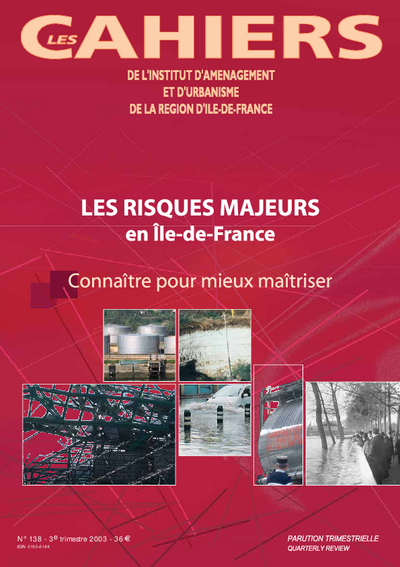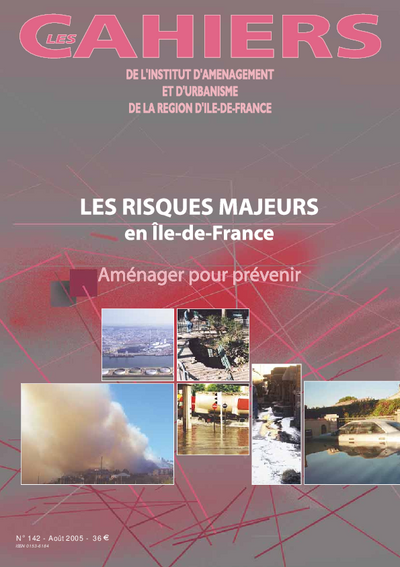Major risks in Ile-de-France: knowledge as a basis for improved control
In order to enable us to keep our present and our future better under control, the forward-looking thinks on planning and enhancing our region must do more to incorporate the concept of risk prevention, which is a necessary precondition for achieving sustainable development.
Admittedly Ile-de-France is spared earthquakes and cyclones, but it does have to face floods, heatwaves, and storms. The flood of 1910 remains firmly in the memory of the Paris conurbation, and today it still constitutes the reference for work done to improve flood prevention.
Other phenomena potentially affect the Ile-de-France region due to the density of its urbanisation, the extent of the property exposed, its industrial history, and its natural areas.
Acquiring knowledge is the first stage in preventing and managing risks; this issue of Les Cahiers contributes to knowledge acquisition by giving a panorama of the various potential risks to the region.
Through its position and its tradition of working in partnership, IAURIF is able to act as an interface between the risk analysis specialists, the central governmet departments in charge of applying the regulations, the local councillors, and the other local players.
Through its local knowledge on the ground, it is particularly well qualified for identifying the issues in terms of population, industrial and business activities, infrastructure and equipment, or heritage.
Pooling knowledge for mutual benefit is a response to convergent requests and to the need to assess the risks fully in order to control them better in a metropolis that today boasts a population of 11 million.
This study is linked to the following theme :
Environment

